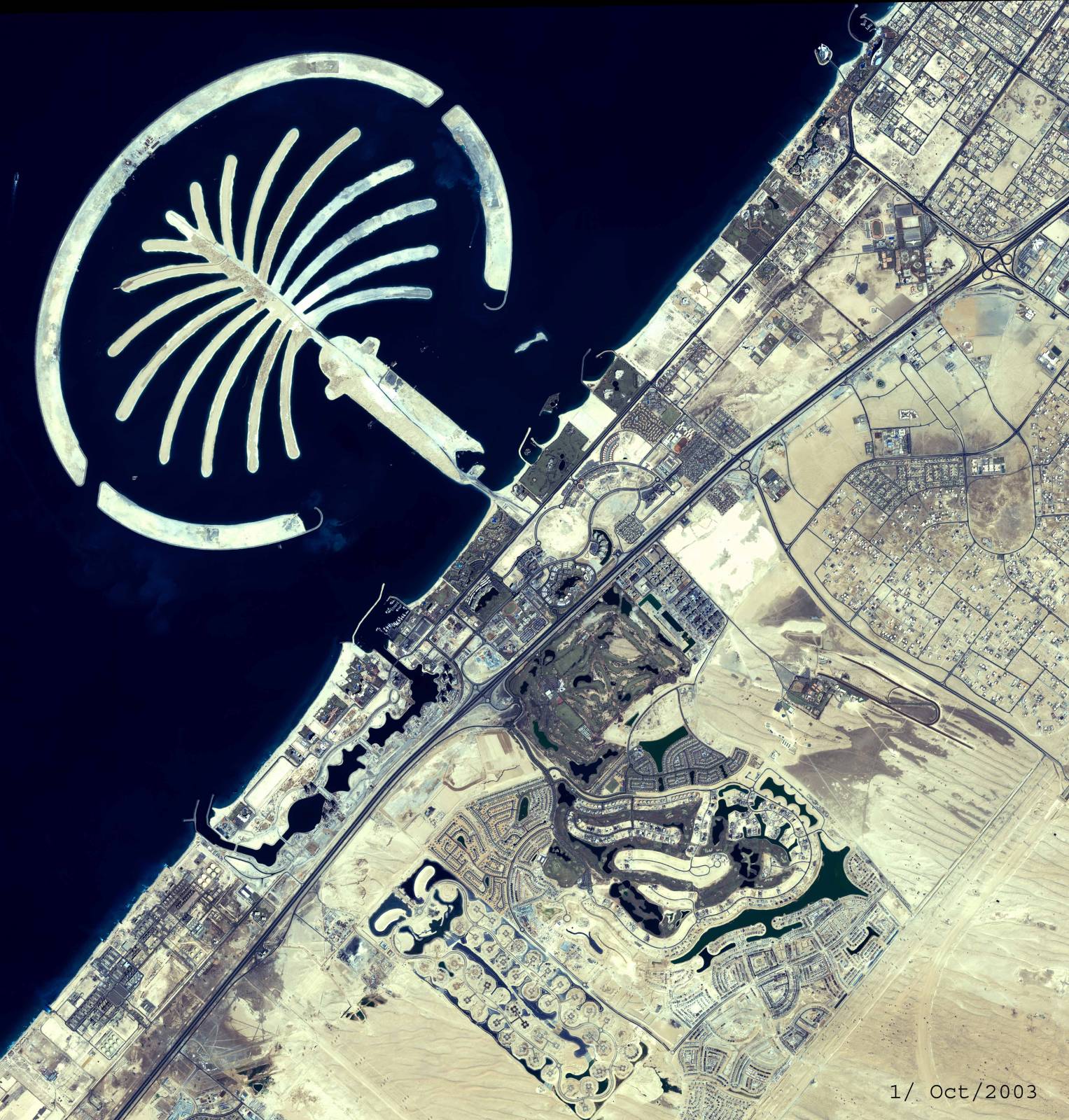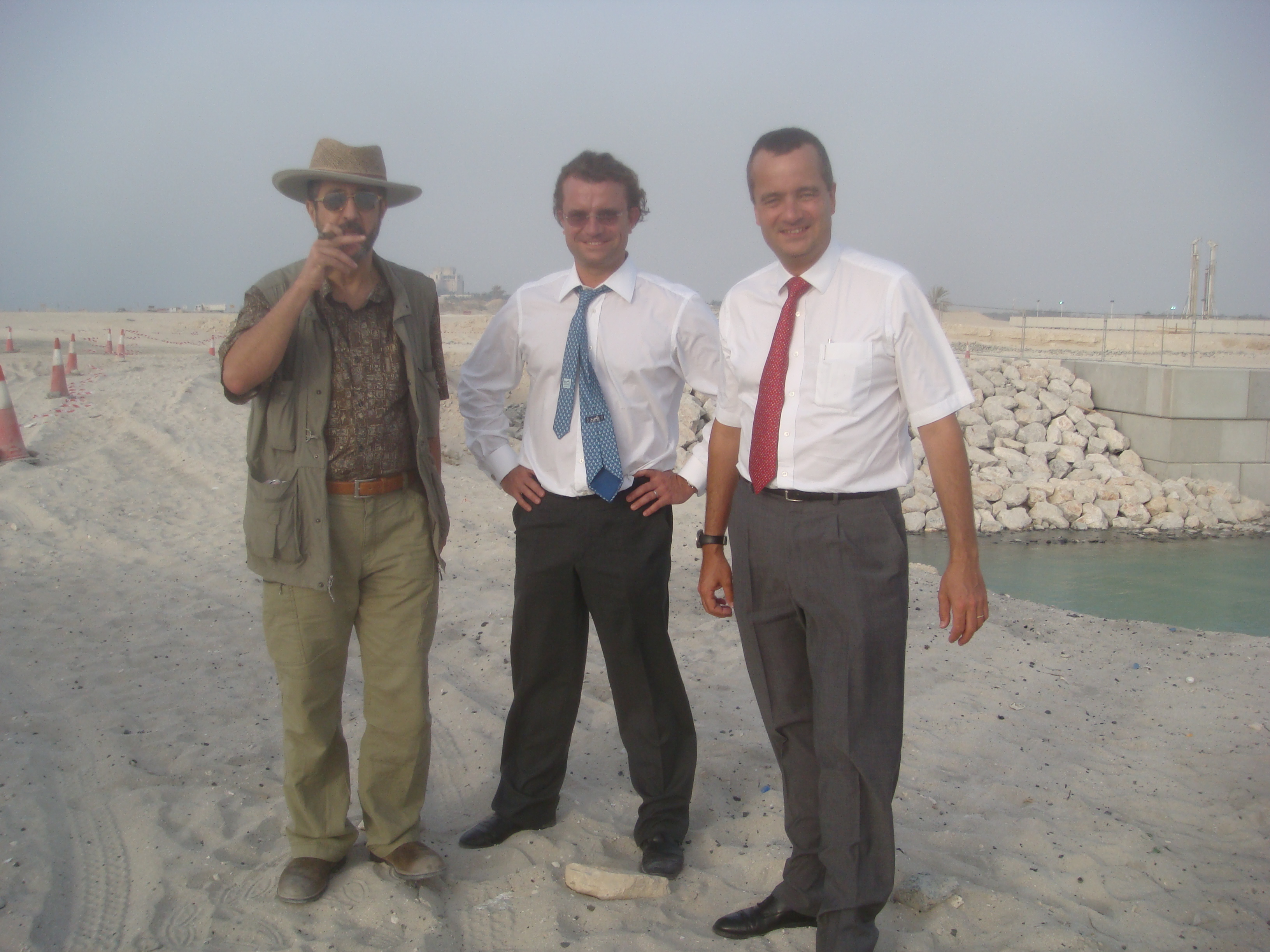GEOTECHNICAL ENGINEERING CONSULTING AND GEOTECHNICAL MANAGEMENT SERVICES PROVIDED TO :

I. As specialized Geotechnical Engineering consultant:
To ensure that all Geotechnical Works such
as land reclamation and earth works, ground improvement, foundations and all
other related works of Nakheel Projects are well planned and executed
contractually in full compliance with International Standards at the most
optimum time and cost.
To provide all needed world class in-house technical support Nakheel
in the field of Geotechnical Engineering to ensure achieving the above and through out all phases starting from tender
preparation to completion of the project.
Full responsibility of all geotechnical aspects of the Client’s
development projects.
This would include marine reclamation
works, foundation works and ground
improvement activities such as vibrocompaction, vibro stone columns, sand
columns, and dynamic compaction.
Tasks include the following:
1.Development
of technical specifications and quality control procedures for the design,
supervision and construction of geotechnical engineering works such as land
reclamation, earth (soil and rock) works, ground improvement works, foundations
works (shallow and deep), retaining structures, rock engineering works, shoring
protection works, tunnelling works, ground water control systems, underground
excavation support , remediation of geotechnical problems and a wide range of
geotechnical construction works.
2.Development
of design criteria for geotechnical engineering works, including earthquake
resistant design, foundation and ground improvement works.
3.Manage the preparation of technical
specifications of geotechnical field and lab investigations required for
planning and execution of projects.
Manage the interpretation of geotechnical investigation reports for the
purpose of design of land reclamation, ground improvement and geotechnical
engineering works.
4.Development
and execution of investigation plans for the selection of most technically
suitable and economically feasible dredging material and sites for use in land
reclamation works.
5.Technical
review of contractor and consultant
submitted tenders and technical proposals, designs, and specifications related
to geotechnical engineering works.
6.Consultancy,
technical supervision and quality control of geotechnical investigations, land
reclamation, ground improvement, foundation and earth structures works.
7.Evaluation
of technical feasibility of ground improvement and foundation works contracts.
Provide technical assistance to sites to assure proper quality control
procedures of land reclamation, ground improvement and foundations works.
8.Design and
supervision of geotechnical aspects of dredging, land reclamation, shoring
protection, ground improvement and
foundation works.
9.Technical
design and feasibility analysis of ground improvement works and foundation
works.
10.Manage and
train others in the geotechnical assessment of technical proposals, the
review of geotechnical designs, and
preparation of geotechnical reports.
11.Assessment of geotechnical engineering
practices and evaluation of experiences on land reclamation, ground improvement
and foundation works at different Nakheel Projects and establishment of
compiled lessons learned in this regard for use in future Nakheel Projects to
achieve most technically feasible, cost and time effective construction.
12.Provide
technical opinion on geotechnical
aspects of claims and legal matters when they arise for Nakheel projects (e.g. land reclamation
works, ground improvement and foundations works, etc.)
13.Geotechnical
monitoring of ground improvement projects, including the analysis of
geotechnical data collected during the progress of site works, and after
completion of the works.
14. Assist the
Client General Managers and Project
Managers in promoting and developing the geotechnical knowledge within the Client,
which shall include meeting with potential Developers, Purchasers, Contractors,
and Consulting Engineers, and making technical presentations.

II.LIST OF
SERVICES TO PREVIOUS CLIENTS :( e.g, NAKHEEL, EMAAR, ALDAR and Other Past Clients):
i)
Expert advise/consultancy, analysis, design
and supervision of geotechnical aspects of dredging, land reclamation, shoring
protection, earth fill, foundation, and offshore works.
ii) Establishment
of terms of reference for geotechnical investigation studies (field and lab
testing) required for ensuring safe and economic design and durable
construction of land reclamation works, buildings and infrastructure
development on rock and soil.
iii) Evaluate and
interpret results of geotechnical site and lab investigations, and make
recommendations on: i) suitability of
project site and most appropriate type of foundation considering structure,
ground conditions and cost and time constraints, ii) requirement of ground
improvement, and stabilization measures to ensure achieving targeted level of safety, and iii) rock/soil material
engineering design parameters for geotechnical works.
iv) Develop
quality control procedures (sampling technique, field and lab testing, verification procedure, etc) to ensure
delivery of geotechnical material (e.g.
rock armour quarry run, filter material, dredged and land fill material, etc)
in full compliance with targeted specifications and standards.
v) Establish design
criteria and conduct analysis and design of geotechnical works dealing with
soil and rock material (e.g. shallow and deep (piling) foundations, ground
improvement works, diaphragm walls, embankments, shoring protection works,
earth and retaining structures, underground excavation support works, tunnels,
ground water control system, etc).
vi) Develop
earthquake design parameters and response spectrum for design of buildings and
infrastructure considering regional tectonics and local geology and soil/rock conditions.
vii) Develop a
workable investigation plan for selecting best dredging material and dredging
sites for use in land reclamation for upcoming Client projects to ensure full
compliance with targeted specifications and avoid problems of liquefaction, excessive
fines content, weak materials, piping erosion, creep settlement, and other
durability related problems. Evaluation of properties of dredged material based
on such studies and make recommendations.
viii) Recommend
best practices for land reclamation works and most effective methods of ground
improvement works for each type of dredging material ensuring compliance with
safety and design requirements (settlement, bearing capacity and resistance to
liquefaction), cost requirements and optimum time of execution.
ix) Recommend
specifications, codes of practice and quality control methodologies for land
reclamation geotechnical works.
x) Review, make
recommendations and certification of method statements for geotechnical
engineering works submitted by the contractors (e.g. ground improvement, piling, shoring, etc).
xi) Recommend
geotechnical practices and materials that meets the requirements of safety,
cost effectiveness and timely execution.
xii) Participate
in technical meetings representing Client.
xiii) Third party
review of geotechnical studies, design, specifications and make recommendations.
xiv) Provide all
needed geotechnical advise to Client.
xv) Conduct
individual or joint routine site visits representing Client for inspection and
recommendation.
xvi) Recommend
and supervise monitoring program of geotechnical works (e.g. settlement, pore
pressure, erosion etc)
xvii)Conduct
value engineering analysis of geotechnical works

SUMMARY
OF GEOTECHNICAL SERVICES
·
SITE CONDITIONS:
1. Regional Geology.
·
SUBSOIL CONDITIONS :
1. Subsoil Properties
2. Groundwater
3. Details of Underground Obstructions.
·
FIELD INVESTIGATION:
1. Field
Tests.
·
LABORATORY TEST.
·
HYDROLOGY :
1. Erosion Potential, Surface Run.
·
SEISMICTY ANALYSIS:
1. Determination of Site Classification
2. Determination of
Site-Specific Equivalent Maximum.
·
FOUNDATION ANALYSIS
1.
Ultimate and allowable Soil Bearing Capacity.
2.
Foundation Settlement
2.1. Immediate settlement during of
sub-soils
2.2. Long Term settlement.
·
Other
Considerations:
1.
Liquefaction potential of sub-soils.
2.
Swelling potential of sub-soils.
3.
Collapsible sub-soils.
·
Recommended
Foundation Types.
·
Earth Pressures.
·
Maximum Allowable
Soil Bearing Pressure Under Cranes During Heavy Lifts.
·
EARTHWPRK
1.
Suitability of On-Site Material and Non-Structural Fill
2.
Availability of Imported Fill.
3. Proof
Rolling, Recommended Compaction Criteria.
4.
Recommended Type of Material under Footings, Slabs.
5.
Anticipated Compaction Difficulties and Recommended Solution.
· DIKES
1. Dike
Slopes
2. Type
and compaction of Dike Material.
3.
Seepage Analysis.
4. Slope
Stability Analysis.
5.
Erosion Protect on of Slopes.
6.
Suitability of Sub-grade Material.
· PONDS:
1.
Treatment for Reducing Seepage.
2. Slope
Stability Analysis.
3.
Erosion Protection of Side Slopes.
·
ROADWAYS:
1.
Natural and Fill Subgrade Recommendations.
2.
recommendation CBR Value or other subgrade parameter such as coefficient of
subgrade reaction.
3.
Treatment for improving Subgrade CBR Value, if required.
·
EXCAVATION
PROBLEMS:
1. Slope
Excavation.
2.
Shoring if required.
3.
Groundwater Control.
4. Flow
Quantities.
5.
Effects on Existing Facilities.
·
SUB-SOILPROPERTIES.
·
RECOMMENDATION OR
DISCUSSIONS ARE REQUIRED ON THE FOLLOWING:
1.
Pre-Load Consideration, for tanks, large mats, cooling tower structures.
Pre-Load magnitude.
2.
Drilled shafts/Undeream Foundations:
2.1. Ultimate
and allowable downward capacity through end bearing and skin friction.
2.2. Ultimate and allowable uplift and
lateral capacities.
2.3. Down Drag effects
3. Sheet
Pilling Recommendation for temporary and or permanent protection, retaining
wall construction, etc.
·
RAILROADS:
1.
Natural soil and fill subgrade recommendations.
2.
Ballast recommendations, with consideration to availability.